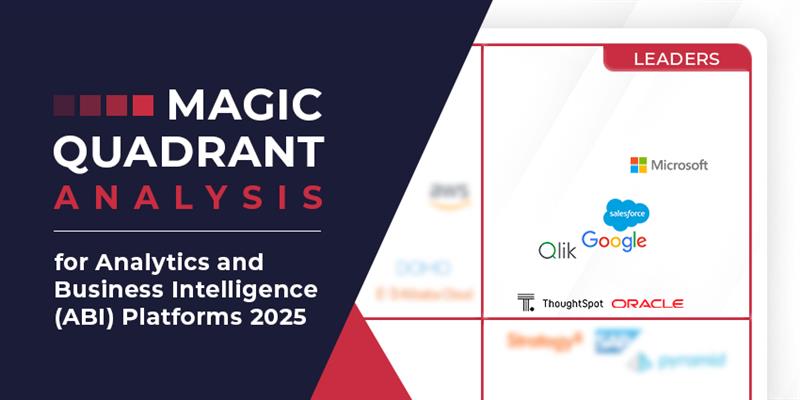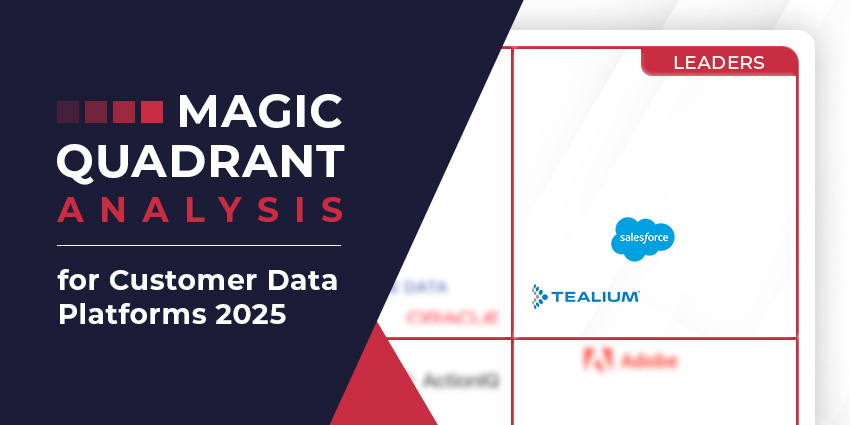The cloud has become a must-have part of every company’s digital transformation journey. Already, around 94% of companies are leveraging the cloud to some degree, whether it’s for storing data, communication, or customer service.
While cloud adoption has been growing consistently over the last decade, the demand for cloud technologies accelerated significantly in the last few years. In a time of rapid digitization, companies use the cloud to stay agile, achieve scalability, and ensure business continuity.
The question is no longer: “is cloud technology necessary?” but “which cloud solution provider can deliver the best results?” To find an answer, we’re looking at two of the market-leading cloud service solutions available to business leaders today: Oracle Cloud and AWS.
What is Oracle Cloud?
Otherwise known as “OCI”, the Oracle Cloud Infrastructure ecosystem is a robust selection of cloud tools and resources designed for next-gen transformation.
Recognized as a Visionary in the Gartner Magic Quadrant for Cloud Infrastructure and Platform Services 2022, this emerging cloud environment is quickly capturing the attention of countless companies planning their migration.
The “OCI” environment offers access to all of the services companies might need to migrate, build, and run their IT solutions within the cloud. There are data lakehouses, storage solutions, open-source databases, machine learning and AI tools, and more.
By combining various DaaS, SaaS, PaaS, and IaaS solutions, Oracle has developed a broad suite of cloud services and products such as:
- Business Analytics, Business Intelligence, Big Data, and Data visualization tools
- Application development, including blockchain, IoT, and database tools
- Cloud infrastructure security, observability, governance, compliance, and management
- Networking and native VMWare functionality
- Open-source databases
- Comprehensive storage and Oracle Databases
- Machine learning and AI innovation
- Content and experience management technology
Oracle Cloud Fusion for Customer Service
For companies focused on customer service and experience management, Oracle offers the “Oracle Fusion Service unified platform. This solution provides a wide selection of capabilities designed to offer effortless self-service, field service, and agent-assisted service workflows.
The technology can be tailored to suit the needs of different industries, including those in the communication, high-tech, manufacturing, and utilities space. There are also specialist solutions for healthcare, retail, and government services.
Oracle Cloud Fusion Service focuses on helping businesses to deliver a digital-first customer service environment based on the following:
- Customer Self-Service: Build and deploy branded customer help centers to assist with common customer questions. Create knowledge-based articles, how-to documents, and product manuals, and design custom digital assistants and service automation tools. Users can also automatically escalate requests from self-service channels to agents.
- Agent Assisted Service: Automatically route cases to the best agent based on skill set or availability. Empower agents with searchable activity feeds of all customer interactions and build automated service workflows for onboarding and boosting productivity. Users can also use AI to guide agents to answers and leverage digital assistants in real-time.
- Field Service: Leverage an AI-driven scheduling and routing engine to improve business efficiency and give field technicians access to mobile tools like guided workflows, video collaboration systems, and more. There’s also built-in support for IoT-connected assets, service availability tracking, and integrations.
What Is AWS Global Cloud Structure?
Amazon Web Services (AWS) is a long-standing leader in the cloud services environment. The brand offers endless cloud servers and storage solutions for companies hoping to enhance their data center infrastructure. With AWS, companies can access cloud storage environments supporting managed, hybrid, and block-based archives.
There’s support for various databases and AWS custom technologies, as well as a host of innovative new tools like the Internet of Things, Machine learning, and Extended Reality. Like Oracle, AWS offers dedicated solutions for various industries and verticals, making it easier for businesses to find the exact functionality they need.
There is a range of innovative technologies to explore within the AWS ecosystem, including:
- Analytics and data lakes for securely storing and analyzing data
- Serverless computing for comprehensive growth
- Blockchain technology and application development with DevOps
- Cloud foundations with instance schedulers and workflows
- Content delivery and edge servers, alongside AWS Compute options
- Comprehensive databases with a range of configuration options
- Machine learning, AI, and IoT innovation
- Enterprise resource planning, management, and governance
- Networking, migrations, and modernization
Amazon Connect for Customer Service
For companies focusing on AWS to shift their customer service strategy into the cloud, the leading solution offered by the company is “Amazon Connect”. This omnichannel contact center service is designed to combine employee management, chat, video, voice, and AI into a single platform.
Amazon Connect is a straightforward ecosystem with infinite cloud scalability, which allows companies to rapidly bring new agents onboard whenever they choose. There’s built-in AI and machine learning for customer insights, extensive reporting, and customizable interfaces that work across several devices. Plus, Amazon has a comprehensive partner network that can offer solutions to work alongside the Amazon Connect service. Amazon Connect focuses on the following:
- Omnichannel Communications: Powerful management for a network of telephony providers worldwide. There is 200+ outbound calling destinations available, and users can access high-quality audio via desktops or softphones. Users also gain access to comprehensive campaigns across SMS, video, social media, and email.
- Agent Experience: End-to-end solutions for agent experience management, including task management tools via Amazon Connect Tasks, contact center automation and workflows, intelligent assistants, contact center control panels, and skills-based routing. Users can also leverage unified customer profiles, case management tools, agent assist, and caller identification tools to minimize the risk of fraud.
- Intelligence: Artificial intelligence tools are everywhere within Amazon Connect, helping with things like risk detection in real-time, automatic sentiment analysis, Amazon Connect Wisdom for next-best-action guidance, automatic data redaction, call summarizations, and natural language chatbots.
- Forecasting and Reporting: Forecasting and reporting tools allow companies to gain behind-the-scenes insights into business operations, plan for capacity, contact requirements, and schedules, and even set up self-service and flow-builder solutions. There is also real-time and historical analytics and call recording available.
Which is Best?
Ultimately, Oracle Cloud and Amazon Web Services are the biggest players in the cloud environment. Oracle Cloud is a little newer than Amazon Web Services, so it doesn’t have quite the same scope as the leading cloud giant yet. However, it does offer some excellent solutions specifically for the customer service landscape. It’s particularly well-suited to the field service landscape.
Alternatively, AWS is a much bigger cloud solution with much more functionality and a significant degree of extra functionality in the AI and machine learning space.







